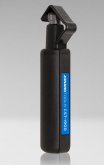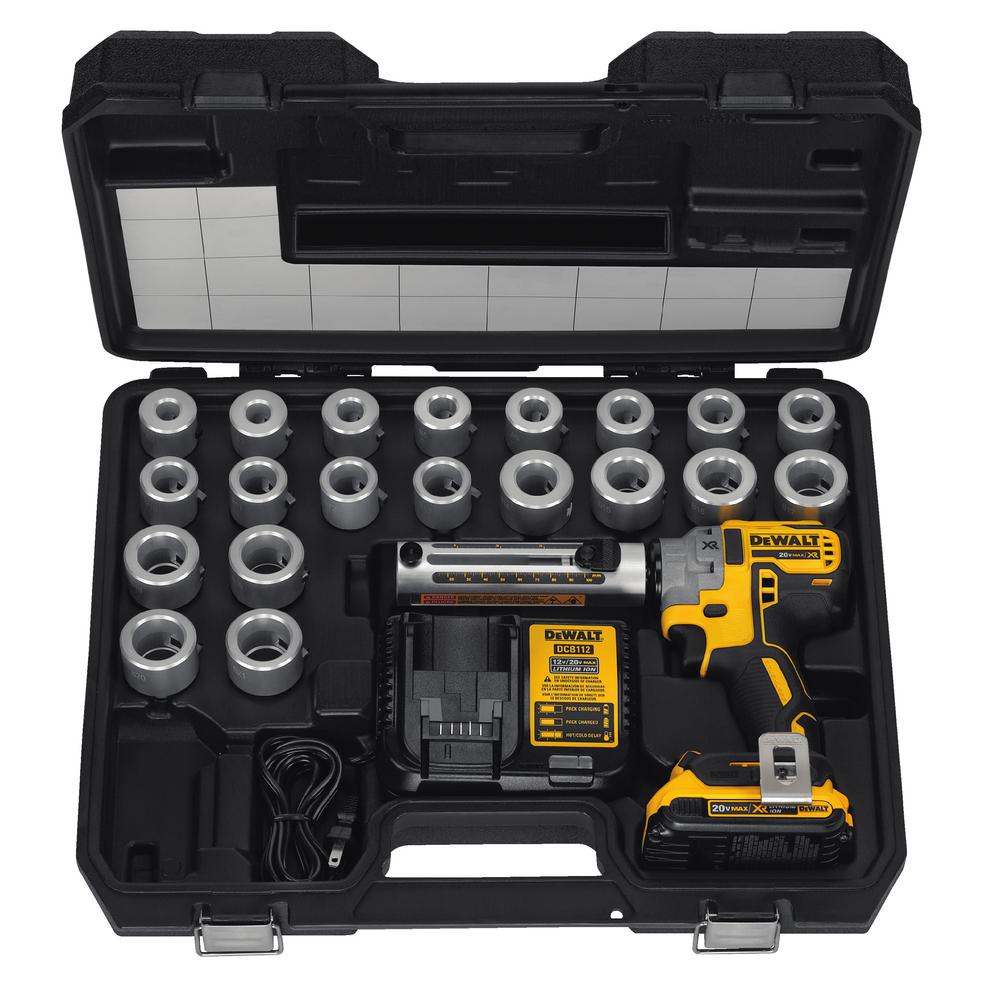I was on a quest yesterday and went spelunking into the far corners of the Internet for cable strippers. Either I entered just the right search terms or I have my browser locked down because I didn't get any porn results.
Some of the more interesting cable strippers that I found are listed below. All of them may need to be configured to
your wire. The knives can be adjusted for the thickness of the insulation.
Dewalt DCE151TD1 20V MAX* XR® CORDLESS CABLE STRIPPER KIT
It's an all-in-one kit that can strip 6 AWG to 750 MCM CU and 900 MCM AL. The quick connect bushings in the kit are designed to fit different cable sizes. It's a slick kit in my opinion. With a depth gauge on the collar, it's easy to get consistent, predictable strip depths. A good portion of the time I spent stripping insulation is measuring the depth. This tool would have saved me a lot of time.
At $326 on Amazon, this is a very expensive cable stripper. But it sure is cool!
Ripley Tools WS 68 & WS 68 SNAP Series
This is the same tool in the Dewalt kit, but without the drill part. Purchase the collar and then the specific bushings you need for the wires to be stripped. Ripley offers straight cut and chamfer cut bushings, while Dewalt only provides straight cut. The Ripley bushings should fit the Dewalt.
Pricing is challenging. There aren't many retail sites that sell this. On TechToolSupply.com, the collar tool is $240, then you have to purchase individual bushings for around $90 each. However, their selection is limited to only two bushings! 3/0 and 4/0. At that price, the Dewalt kit is a bargain.
Ripley 4x4 Plus Series
Ripley sells a manual tool that uses the same bushings. It holds four bushings. $157 at
J Harlen.
Klein Large Cable Stripper 21051
Klein makes a tool similar to the Ripley 4x4. I haven't found the bushings for it. I read that they are not fixed (they're interchangeable). A bargain at $55.
Jonard Tools CST-1900 Round Cable Stripper
Strips cable 3/16” to 1 1/8” (4.5 mm to 29 mm) in diameter. That covers the size of cable I was looking to strip. It says it can strip rubber insulation which was what brought this tool up on my radar. It looked promising and I almost bought it. But the reviews prevented me from going through with it. There were a lot of positive reviews, but the very pointed negative reviews held me back. $41 on Amazon. The CST-4000 works on even larger cable.








